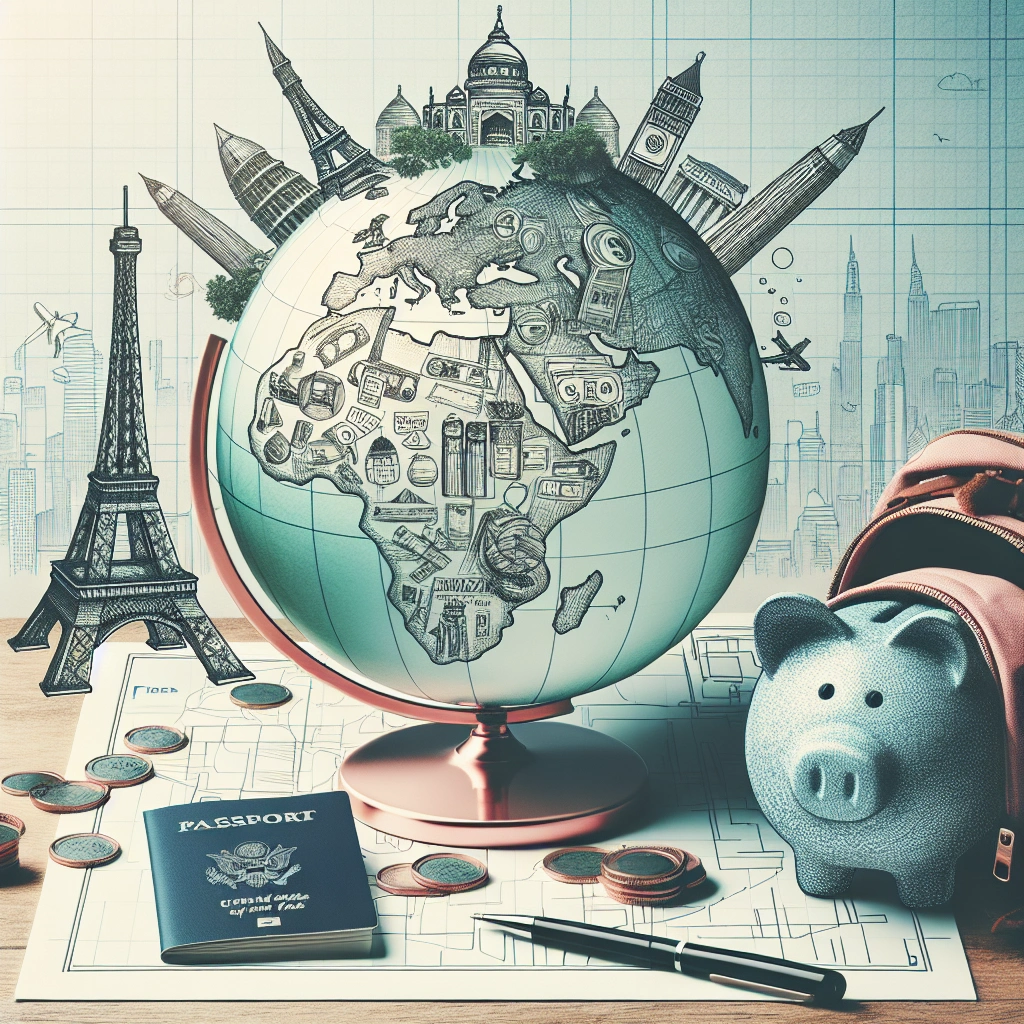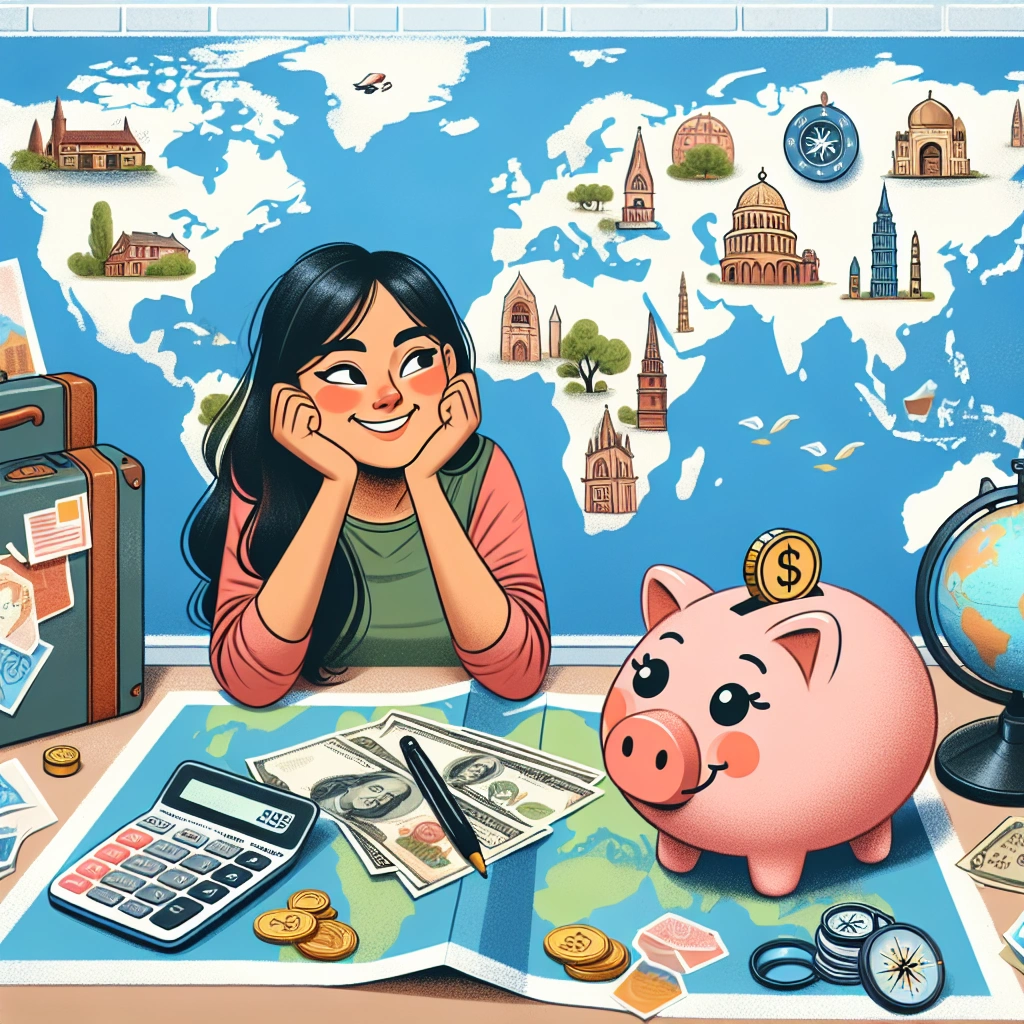Traveling is one of life's greatest joys, offering experiences and memories that can last a lifetime. However, the rising costs associated with trips can make it seem daunting, especially for those on a budget. Luckily, with the right strategies and a little planning, you can explore new places without breaking the bank. Here are essential tips for traveling smart and making your next adventure budget-friendly.
Before you dive into travel planning, take some time to assess your finances. Determine how much you can realistically spend without compromising your financial goals. A well-defined budget will help you keep track of your expenses and avoid overspending. Break your budget down into categories, including transportation, accommodations, food, activities, and souvenirs.
One of the easiest ways to save money on travel is to be flexible with your travel dates. Flight prices can vary significantly depending on the day of the week or the time of year. Use fare comparison tools available online or sign up for fare alerts to catch the best deals. Traveling during the off-peak seasons can also yield huge savings on flights and accommodations.
Consider flying with budget airlines, which often offer lower fares than major carriers. Additionally, exploring alternative accommodations such as hostels, guesthouses, or vacation rentals can reduce your lodging costs considerably. Websites and apps like Airbnb, Hostelworld, and Booking.com provide various options for travelers on a budget.
Instead of relying on taxis or rental cars, familiarize yourself with the public transportation options available at your destination. Buses, subways, and trams are often more affordable ways to get around, and they also provide a local feel. Many cities offer travel passes that can reduce your overall costs if you plan on using public transport frequently.
Dining out can quickly deplete your travel budget, but you can save money by eating like a local. Seek out street food vendors, local markets, and affordable eateries that offer authentic regional cuisine. Not only will you save money, but you'll also enjoy a more genuine taste of your destination. Consider buying groceries and preparing some meals yourself if your accommodation allows.
You don’t need to spend a lot to have a great time when exploring a new place. Many cities offer an array of free or low-cost activities, such as parks, museums with free entry days, local festivals, and walking tours. Research ahead of time and create a list of must-see attractions that fit your budget. Additionally, packing a picnic and enjoying it in a beautiful park can provide both a delicious meal and an enjoyable setting without much cost.
Take advantage of credit card rewards and loyalty programs to help offset travel costs. Many travel-centric credit cards offer points for every dollar spent that can be redeemed for discounts on flights, hotels, and car rentals. Additionally, signing up for frequent flyer programs with airlines can lead to free flights and upgrades.
While it's tempting to bring home a piece of your travels, souvenirs can add up quickly. Instead of purchasing multiple items, consider buying a few meaningful keepsakes that serve as memories from your trip. Alternatively, take photographs as reminders of your adventures—these often hold more value than physical items and are free.
For activities and excursions that do require payment, researching and booking in advance can save you money. Many attractions offer discounts for online bookings or combination tickets that allow access to multiple attractions at a reduced price. Additionally, check for special deals during certain times of the day or week to maximize your savings.
If traveling internationally, researching currency exchange rates can save you a considerable amount of money. Avoid exchanging currency at airports, as the rates are often far less favorable. Instead, use local ATMs or exchange currency at reputable banks to get the best rate possible.
Traveling on a budget doesn’t mean you have to sacrifice quality experiences. With careful planning, flexibility, and a little creativity, you can embark on incredible adventures without overspending. Armed with these tips, you’ll be well on your way to exploring the world while keeping your finances in check. So pack your bags and get ready to travel smart!
 Wanderlust Awaits: Top 10 Destinations to Ignite Your Travel Passion
Wanderlust Awaits: Top 10 Destinations to Ignite Your Travel Passion Analysis of the Gripping Story of Daemon X Machina
Analysis of the Gripping Story of Daemon X Machina Professional Game Guide For Wet Game
Professional Game Guide For Wet Game Wanderlust on a Dime: How to Travel the World Without Breaking the Bank
Wanderlust on a Dime: How to Travel the World Without Breaking the Bank Wander More, Spend Less: Top 10 Budget Travel Tips for the Thrifty Adventurer
Wander More, Spend Less: Top 10 Budget Travel Tips for the Thrifty Adventurer Budget Travel Hacks: How to See the World Without Breaking the Bank
Budget Travel Hacks: How to See the World Without Breaking the Bank
This article provides a comprehensive overview of budgeting for travel. The emphasis on setting a realistic budget is particularly helpful, as it serves as the foundation for all travel planning. I appreciate the breakdown of categories, as it allows travelers to allocate their funds more effectively. The point about being flexible with travel dates is also crucial. I've found that changing my departure or return date by just a day or two can lead to significant savings. Furthermore, the suggestion to consider budget airlines and alternative accommodations resonates well with me. There are so many options available now that it’s easier than ever to find affordable lodging. Overall, this guide seems beneficial for anyone looking to explore new places without overspending.
I agree with your points! Flexibility in travel dates has saved me quite a bit in the past as well. It's interesting how much difference a day can make in ticket prices.
The advice on using public transportation instead of taxis is particularly useful for budget-conscious travelers. In many cities, public transport can be both efficient and affordable, allowing you to experience local life more authentically. I've noticed that when I opt for buses or trains over cabs, not only do I save money, but I also get a better sense of the city I'm visiting. Additionally, the suggestion to research free and low-cost activities before traveling is excellent; it ensures you have an itinerary full of engaging experiences without unnecessary expenses.
This article does a great job highlighting essential budgeting tips for travelers. One piece that stands out is the emphasis on eating like a local—this approach not only saves money but enriches your experience through authentic cuisine. I’ve tried street food in various countries and found it to be one of the highlights of my travels! Moreover, researching free activities ahead of time can help ensure that you don’t miss out on unique experiences that don’t cost anything. It’s always exciting to find hidden gems like local festivals or parks.
Absolutely! Local cuisine can tell you so much about a place’s culture and history.
'Limiting souvenir spending' is an interesting tip often overlooked by travelers eager to bring something back home from their adventures. It's easy to get caught up in buying trinkets that may ultimately gather dust later on instead of holding meaningful memories from your trip. Instead, taking photos or buying one meaningful item could serve as better reminders of your journey while staying within budget constraints.
'Souvenir spending' is definitely tricky; sometimes it feels like you're required to bring something back!
'Limiting souvenirs' definitely helps keep your suitcase light—plus photos don't take up space at all!